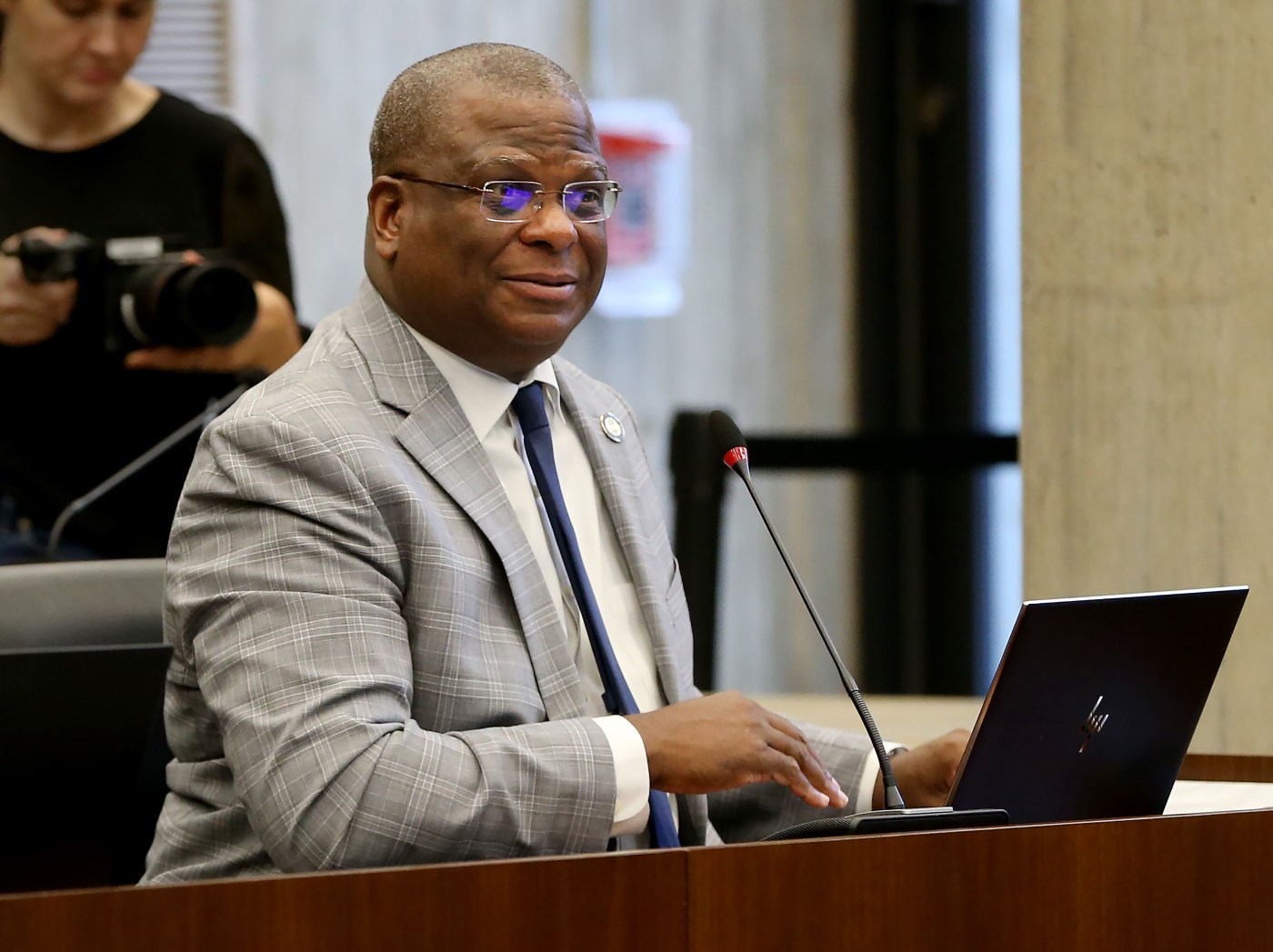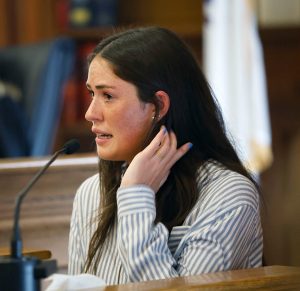
Boston Police records debunk ACLU, critics’ claim that piñata activated ShotSpotter
Boston Police records show a loud noise from a piñata at a birthday party did not activate ShotSpotter, debunking a key example in a report that urged the city to cease use of that technology.
The bogus example was seized upon by the council president and four federal lawmakers.
The incident, which occurred on the night of May 7, 2022, did prompt a police response for shots fired that did not result in a shooting victim, property damage or the recovery of any ballistics evidence, but the report came from a radio call, not from an activation of the ShotSpotter technology, a police report states.
“Note: ShotSpotter activation did not go off during this time,” the police report, obtained by a Herald public records request, states.
“Officers spoke with people who were outside of the above location who stated, ‘It was a birthday party and a loud noise was heard from a piñata.’ Officers left the scene,’” the report goes on to state.
While the police report clearly states that ShotSpotter was not activated by the piñata at the South End neighborhood birthday party, the opposite was portrayed in a report released last month by the American Civil Liberties Union, which alleged that it was citing records from the Boston Police Department from 2020-22.
“The ACLU of Massachusetts has acquired over 1,300 documents detailing the use of ShotSpotter by the Boston Police Department,” the ACLU report states. “Despite the hefty price tag, in nearly 70% of ShotSpotter alerts, police found no evidence of gunfire.
“In one case, ShotSpotter was set off by a piñata at a birthday party. The records indicate that over 10% of ShotSpotter alerts flagged fireworks, not weapons discharges,” the ACLU goes on to state.
The ACLU report, including the piñata example, was cited heavily this week by city councilors who pressed the Boston police commissioner to delay signing a new contract extending the department’s use of ShotSpotter, and by four federal lawmakers calling for a national investigation into how the technology is funded.
The report makes the case for ShotSpotter being ineffective, expensive, and racially biased in that it’s used more in communities of color, concerns that it contends warrant an end to the city’s use of the system.
Related Articles
Warren, Markey, Pressley follow Boston Police review by pressing for federal probe of ShotSpotter
Boston City Hall sexual harassment case settles on morning of trial
Boston Mayor Wu plans to take her children to taxpayer-funded Vatican climate summit
Boston City Council grills police commissioner about ShotSpotter technology
Boston City Councilor Ed Flynn says he won’t run for mayor in 2025
Boston Police Commissioner Michael Cox said the technology, which places sensors that detect audio aimed at transmitting the sound of gunshots quickly to garner a rapid police response, “saves lives.” It becomes particularly important in instances where shots are fired late at night and people don’t call 911, he said.
City Council President Ruthzee Louijeune mentioned the piñata during a Monday hearing when pushing for a cost-benefit analysis that would weigh whether the high amount of “false positives” cited in the ACLU report justify its continued use.
Cox did not dispute the incident at the time, but did say that the piñata incident was being “sensationalized” by the ACLU, and that he’s found ShotSpotter to be fairly accurate and something that notifies police faster than a 911 call.
U.S. Senators Ed Markey and Elizabeth Warren and Boston’s Rep. Ayanna Pressley and U.S. Senator Ron Wyden of Oregon also cited the piñata incident in a Tuesday letter urging the inspector general of the U.S. Department of Homeland Security to investigate DHS funding of the technology.
“Several recent reports have cast substantial doubt on the accuracy and effectiveness of the ShotSpotter gunshot detection system and have raised serious questions about its contribution to unjustified surveillance and over-policing of black, brown and Latino communities,” the lawmakers wrote to Inspector General Joseph Cuffari.
The letter also mentions cities that have ceased use of ShotSpotter over concerns, including Fall River, where the four federal lawmakers chose to quote the disgraced former Mayor Jasiel Correia, who is serving a six-year prison sentence for 11 criminal charges including extortion and wire fraud, as an expert voice.
“As Mayor Jasiel Correia of Fall River, Massachusetts explained, ‘It’s a costly system that isn’t working to the effectiveness that we need it to work in order to justify the cost,’” Markey, Warren, Pressley and Wyden wrote.
Chicago’s mayor announced in February that the city won’t be renewing its contract for ShotSpotter, but Boston is not likely to follow. Shrugging off concerns from councilors, Cox said he wouldn’t be willing to hold off on signing a new agreement when the current one expires next month.
Cox stressed he “would not be willing to delay a tool that saves lives in the city.”
A Boston Police Department telecommunications device on a light pole on Tremont Street. This often includes the Shotspotter system. (Nancy Lane/Boston Herald)


